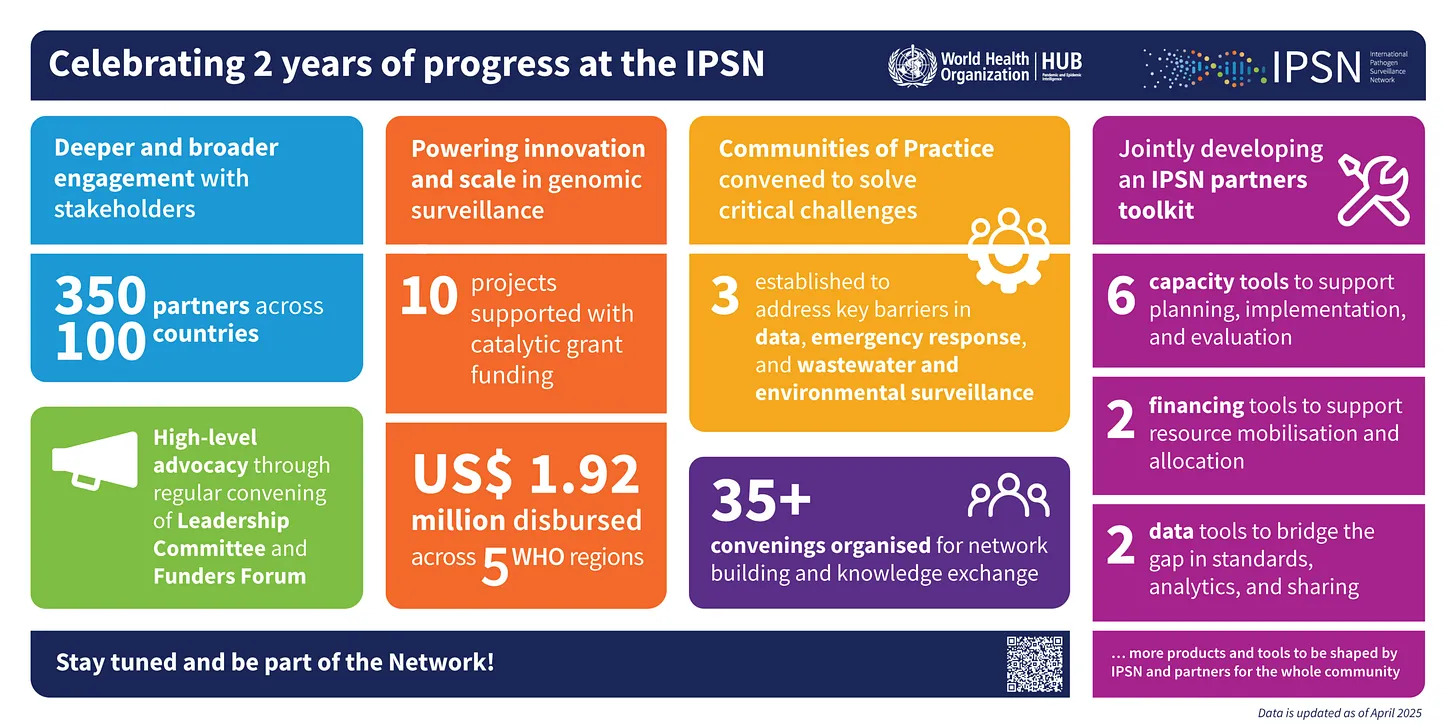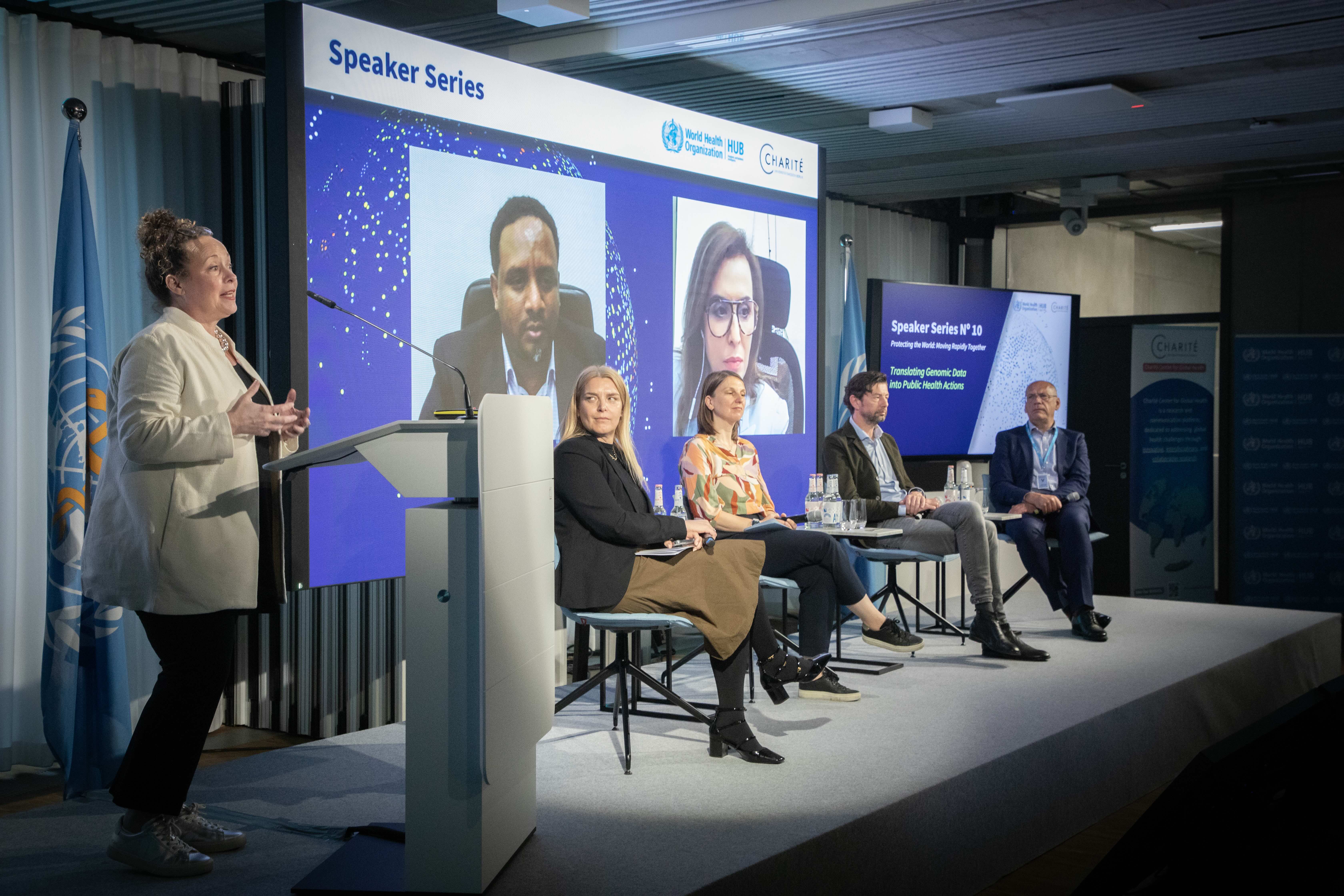Reflections on the past two year
Major disease outbreaks disrupt our daily lives, they can bring economies to a standstill and, in the worst cases, cost lives. But crises like the COVID-19 pandemic also spark innovation and investment, such as the rapid expansion of pathogen genomic surveillance. This allows us to study the genetic material of viruses and bacteria to track how they spread and change, helping health professionals detect new threats early and respond effectively.
However, access to this powerful technology and the capacity to interpret and use the data for decision-making is not equally distributed. Many low- and middle-income countries (LMICs) still lack the laboratory infrastructure, reliable internet, or the tools and training needed to analyse genomic data. While they might contribute samples to global databases, they are not always able to fully utilise the knowledge gained.
That’s why, two years ago, we launched the International Pathogen Surveillance Network (IPSN), whose secretariat is hosted at the WHO Hub for Pandemic and Epidemic Intelligence in Berlin. The aim of IPSN is clear: to improve equitable access to pathogen genomic surveillance, so that all countries can benefit from it as part of their national surveillance systems.
Since then, IPSN has grown beyond what we imagined. From an initial 35 partners in 18 countries, we have now grown to almost 350 organizations in over 100 countries. We support LMICs through our catalytic grant fund and, together with our partners, we developed a practical toolkit that guides countries in building and strengthening their genomic surveillance capacity. We have also brought together several communities of practice to address key challenges in data, emergency response, and wastewater and environmental surveillance, while continuing high-level advocacy through our Leadership Committee and the Funders Forum.
IPSN is a powerful example of what can be achieved through collaboration, innovation and a shared commitment to equity. I invite you to read through this special edition newsletter to learn more about what we have achieved together over the past two years.
Sara Hersey, Director of Collaborative Intelligence, WHO Hub for Pandemic and Epidemic Intelligence
Words from our team and partners

Words from our teams and partners
Communities of practice (CoP) are powerful mechanisms for fostering collaboration, driving innovation, and addressing complex challenges in pathogen genomics surveillance. By uniting experts, facilitating knowledge exchange, and developing actionable guidance, these CoPs are laying the groundwork for a more interconnected and effective global public health surveillance system.
Learn more about IPSN’s work on communities of practice.
WHO establishes communities of practice for pathogen genomics surveillance
“We extend our congratulations to IPSN on its 2-year Anniversary! The dedication to knowledge sharing, capacity building, and advancing research and public health partnerships have strengthened our collective mission in ensuring equitable and sustainable access to genomic technology, tools, and resources for all. We look forward to another transformative year with the team.” Professor Ben Howden, Co-director of the Centre Pathogen Genomics.
Find out how we work with our partner, Centre for Pathogen Genomics, Peter Doherty Institute for Infection and Immunity
Partner spotlight: Centre for Pathogen Genomics celebrates two years of partnership with the WHO International Pathogen Surveillance Network
IPSN in Action
Speaker Series Highlights: Translating Genomic Data into Public Health Actions

Celebrating two years of IPSN, we organised a Speaker Series session “Translating Genomic Data into Public Health Actions”, together with the Charité Center for Global Health in May 2025. Hundreds of participants from around the world joined us—both virtually and in person at the WHO Hub in Berlin—as we work to accelerate progress in pathogen genomics and improve public health decision-making.
👉 Watch the full recording here
👉 Read an event summary
👉 Share among your networks
Advancing progress, together

The nearly 350 IPSN active partners span across 100 countries and are the foundation of IPSN’s mission and vision. By being part of IPSN, members and partners share valuable knowledge and collaborate to respond to our most pressing health challenges.
Join IPSN on Collaboratory!
IPSN is now engaging our community though the Collaboratory - a digital space where the pandemic and epidemic intelligence (PEI) community convenes to address critical challenges that affect the way data is accessed, analysed, visualised, and communicated to support better policy and decision-making in pandemic and epidemic response.
The Collaboratory brings together individuals, groups, and communities of practice who are connected under the shared goal of solving our most pressing global health challenges.
Through our community on the Collaboratory, you can share and discover new resources, publications, and insights, and connect with colleagues around the world to help close knowledge gaps and collaborate on solutions.
